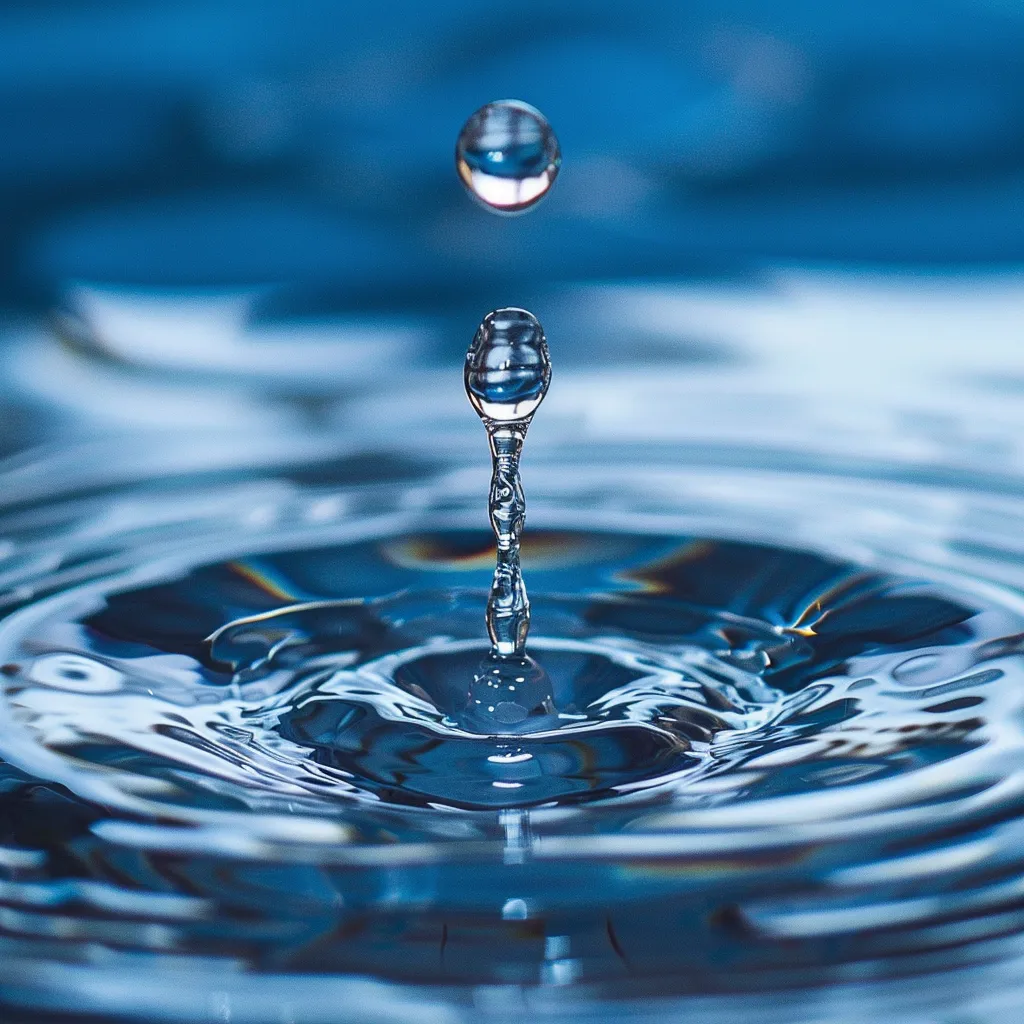
The Hydration Upgrade: What Water Should You Drink?
We all strive to 'drink more water' — but what if the type of water you’re drinking is working against you?
Hydration isn’t just about getting enough water. It’s about how well that water actually gets into your cells — and that depends on mineral content, structure, and purity. If your water is “dead” or unbalanced, you might be flushing your body without truly hydrating it.
Let’s unpack what kind of water actually supports deep, cellular hydration — and what to avoid.
What to Avoid
❌ Artificially Alkaline Water
Artificially alkaline water can actually be dehydrating over time because it disrupts the natural chemistry and signaling of your body. Here’s why:
It's typically made using electrolysis, where water is split into acidic and alkaline parts using electricity. The alkaline portion (with a pH often above 9) is marketed as “healthier” or more hydrating — but this process does not add natural minerals. It's "alkaline" by pH only, not by mineral content, which is how water is naturally buffered in the body.
⚠️ Why It Can Be Dehydrating:
Lacks Electrolyte Balance
Hydration happens inside your cells, and that depends on a balance of minerals like sodium, potassium, and magnesium. Artificially alkaline water may have a high pH but low mineral content, which means it can flush out your own minerals rather than supporting true hydration.Disrupts Stomach Acid
High pH water can dilute stomach acid, making it harder to digest food, absorb minerals, and activate bile — all crucial for metabolic and hydration pathways.Unnatural pH Can Confuse the Body
Your body is designed to handle mineral-rich alkaline water from springs — not synthetically manipulated pH levels. The body works harder to re-regulate internal pH, which can cost energy and minerals.Oxidative Potential Matters
Natural spring water often has a negative ORP (oxidation-reduction potential), which is antioxidative. Many artificially alkaline waters don’t — and some may even be pro-oxidative, adding stress to the body.
Bottom Line:
Alkaline from minerals = good (like calcium, magnesium)
Alkaline from electricity = not ideal
❌ Unfiltered Tap Water
Often contains:
Chlorine
Fluoride
Heavy metals
Pharmaceutical residues
All of which can burden your liver, disrupt hormones, and damage your microbiome.
❌ Plastic Bottled Water
Can leach endocrine disruptors (like BPA)
Lacks minerals
Harmful to the environment and your health
❌ Distilled Water (Long-Term)
Stripped of all minerals
Becomes overly aggressive, pulling nutrients from your body if not remineralized
Best reserved for short-term detoxes with proper supervision.
Best Types of Water for Real Hydration
💧 1. Natural Spring Water
Naturally filtered through rocks and soil
Contains beneficial minerals like magnesium, calcium, and potassium
Often “structured” by the Earth’s movement — believed to support better absorption
Look for trusted, third-party tested brands like:
Tourmaline Spring
Castle Rock
Mountain Valley Spring Water
Spring water is ideal because it comes with natural alkalinity from minerals, not artificial processes. Find a spring near you at www.findaspring.org
💧 2. Filtered Tap Water + Mineral Replenishment
Use a high-quality filter to remove chlorine, fluoride, and heavy metals (e.g., Berkey, Aquasana, Clearly Filtered). I recommend a double filter process when consuming tap water - I personally use a Berkey or ProOne as a first filtration step, and then a Zero filter as a second step.
Then I use trace mineral drops or a pinch of sea salt to restore electrolyte balance.
This is one of the most accessible and effective ways to upgrade your daily water.
💡 Quick Tip: Start your morning with warm filtered water + sea salt or lemon to wake up your digestion and hydrate your cells.
💧 3. Reverse Osmosis (RO) Water + Remineralization
RO systems remove nearly all contaminants — but also strip minerals
Must be remineralized to avoid becoming too acidic or “dead”
Works well when combined with trace minerals or natural sea salt
Ideal if you’re filtering poor-quality tap water — just don’t skip the rebalancing step.
💧 4. Structured or Vortexed Water
Mimics how water flows in rivers and streams
Believed to improve hydration and energy by aligning water molecules
Popular products: Analemma, Mayu Swirl, or even DIY vortexing (stirring with a spoon in a circular motion)
While the science is still emerging, many people notice increased vitality with structured water.
In Conclusion:
Your body is 70% water — but not just any water will do.
The quality of your water affects your digestion, detoxification, energy, and even brain clarity. Don’t just drink more… drink better.
